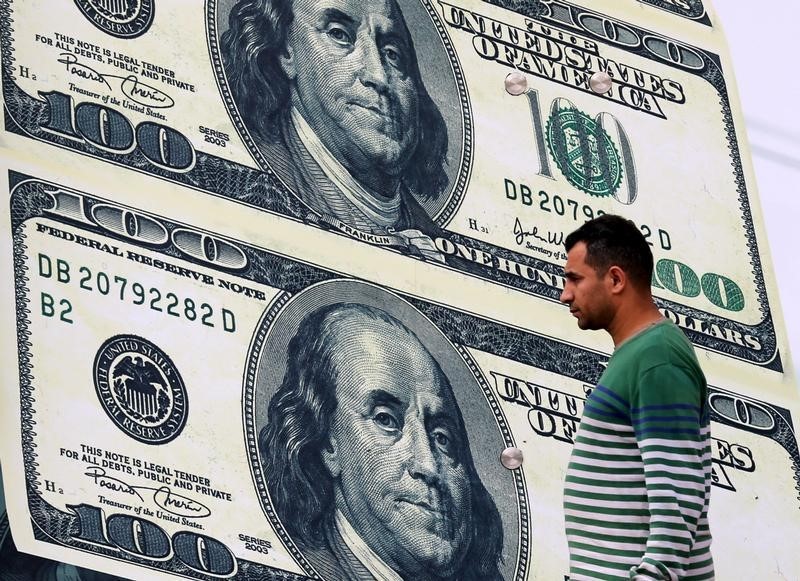By Peter Nurse
Investing.com - The U.S. dollar edged higher Friday, boosted by strength against the Japanese yen, while the euro pushed higher following the hawkish turn by the European Central Bank.
At 3 AM ET (0800 GMT), the Dollar Index, which tracks the greenback against a basket of six other currencies, traded 0.1% higher at 98.627.
USD/JPY rose 0.5% to 116.70, climbing to its highest level since January 2017, and up 1.5% this week, its biggest weekly gain since October.
This move follows Thursday’s release of data showing that U.S. consumer prices surged 7.9% year-over-year in February, the largest annual increase in 40 years.
Both the Federal Reserve and the Bank of Japan have policy meetings next week, but while this inflation release all but confirms the Fed will tighten monetary policy in the form of an interest rate hike, the BOJ is set to retain a dovish monetary policy.
EUR/USD edged higher 0.1% to 1.0984, the day after the European Central Bank announced it would be speeding up its plans to tighten monetary policy, phasing out all of its asset purchases in the summer if inflation fails to come down fast enough.
Still, while the euro is higher, it has struggled to retain most of the gains seen after the announcement.
“By ending asset purchases sooner than anticipated, the central bank is taking the dangerous step of tightening in the face of slowing growth. Even [ECB President Christine] Lagarde said the risks to growth are to the downside,” said Kathy Lien, an analyst at BK Asset Management.
Analysts from Goldman Sachs stated on Thursday that they expect economic output in the Eurozone to actually shrink in the second quarter, citing the region’s proximity to the war in Ukraine.
ABN Amro now has a base case of EUR/USD falling to parity or even below for the first time in about two decades, with the supply disruptions to key commodities disproportionately hitting the euro area economy and delaying European Central Bank tightening.
Elsewhere, GBP/USD was flat at 1.3081, despite Britain's economy rebounding much more than expected in January, with GDP climbing 0.8% on the month in January after a 0.2% decline in December.
The Bank of England policymakers meet next week and were already widely expected to hike interest rates once more, even before this stronger than expected data.
AUD/USD lost a little ground on Friday, down 0.2% to 0.7345, after the recent strong rally due to higher commodity prices.
